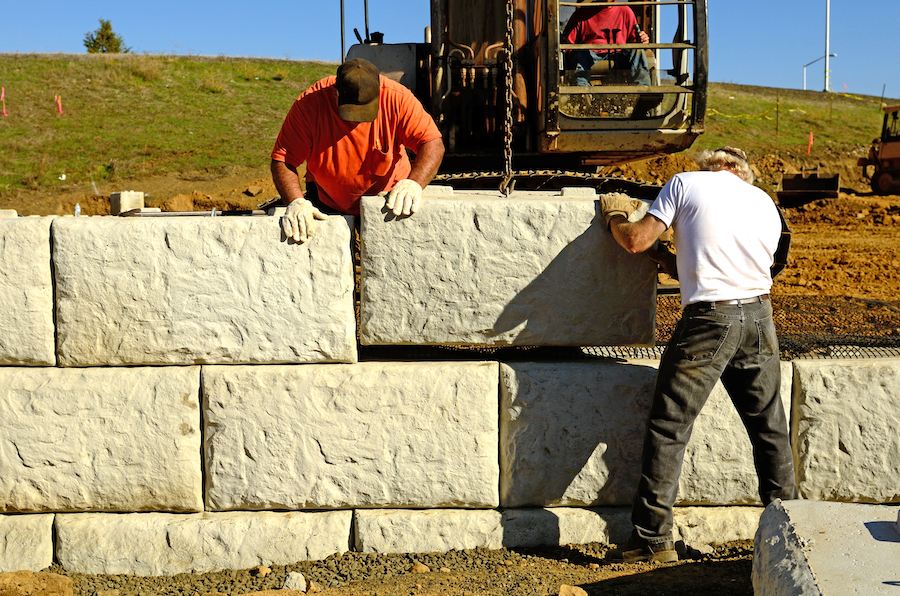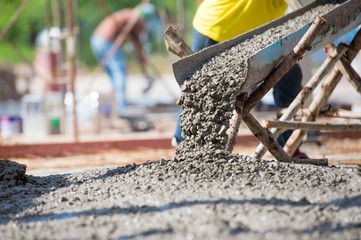Retaining Wall Contractor should be able to provide a portfolio of past projects. They should also be able to provide references from previous clients.
Customs and Border Protection invited four companies to design border wall prototypes. Two contractors, Caddell Construction and W.G. Yates & Sons, have a history of violating government contracting rules.

Professionalism is the ability to perform a task by accepted standards. It is a quality that should be evident in how a contractor conducts business with you. This includes how they respond to your questions, how they communicate with you and their team, and how they handle any setbacks during construction and after it is complete. A good contractor will take the time to get to know you and your project and provide a detailed timeline with exact dates for each phase of the work. They should also be able to tell you where their materials come from and why they chose those distributors.
A reputable Wall Contractor will be able to show you a portfolio of projects and give you references you can contact directly. If they cannot provide you with a portfolio or are unwilling to give you any references, this is likely a sign that they need to be more professional.
A professional contractor’s commitment to customer service is another trait to look for in a professional contractor. When a contractor takes the time to create a comprehensive quote, it indicates that they are invested in building a lasting relationship with their clients and are focused on meeting their needs. This can be seen in the level of detail they include, which may even include a site visit to assess your project and discuss potential challenges.
While most general contractors and professional handypersons can remove non-load-bearing walls, load-bearing walls require specialized engineering knowledge to ensure they are not damaged or undermined during removal. A good contractor will make this clear to you and will also be able to explain how they can determine whether a structural engineer is needed for the project.
Load-bearing walls support the weight of your home and can be affected by other construction projects at your property. A knowledgeable contractor can advise you when it is necessary to hire a structural engineer to inspect your property and provide a quote for removing your load-bearing wall.
When hiring a contractor to build your new wall, looking at their track record is important. This shows the amount of experience they have and how much knowledge they have acquired throughout their career. This also helps you determine if they are trustworthy companies with good work ethics. A reputable and experienced contractor will be able to help you design and construct your wall with ease.
They will also be able to advise you of any potential problems and how they will be handled. This will save you money in the long run. For instance, they can tell you which material is the best and will last longer in certain weather conditions. This benefits you as the homeowner because it will help you make an informed decision based on facts rather than opinions.
You can also ask them to provide references from their previous clients. If the contractor is unwilling to give you a reference or skirts this question, they likely have a history of poor artistry. If the contractor does have a good track record, they should be more than happy to give you references that will speak to their work ethic and quality of construction.
A seasoned contractor will also be more equipped to handle any issues that might come up during the project. This is especially true if you’re dealing with a load-bearing wall. These walls support the weight of your home and require a professional with extensive structural engineering knowledge to ensure their safe removal.
A reputable and experienced contractor will be valuable when building your new retaining wall in Minneapolis. They will be able to guide you through the entire process from start to finish. This includes assisting you in designing your retaining wall, creating a timeline for the project, and meeting all county and city regulations. They will also have a project manager who will be your liaison and remain active throughout the construction process. This will ensure that all aspects of the project are running smoothly and that you’re getting the most out of your investment.
A contractor’s reputation plays a large role in determining how well a project is completed. Referrals from friends and family members are a great way to find a trustworthy and experienced contractor. However, if you do not have any referrals, the next best thing is to look at online reviews and other customer feedback. You can also ask the contractor for references and browse through their portfolio of projects to get a feel for their work quality.
A reputable wall contractor should be proud of their work and have no problem giving you references to talk to about the job. They should also be willing to showcase their work on their website. For example, if they build retaining walls, they should have pictures of them up on their site along with a description of each one. If a contractor is unwilling to do this, it is best to keep looking for another company.
Besides having a solid reputation, the best contractors should have ample working capital to support their growth efforts. This can be achieved by adopting smart construction finance strategies and creating strong cultures that foster innovation.
The most renowned specialty contracting firms have established themselves in the industry by building a consistent record of success. Two primary organizations recognize them: Walls & Ceilings Magazine and Engineering News-Record (ENR). These companies consistently rank in the top 50 of the W&C Top 50 Contractors List and the top 600 of ENR’s Specialty Contracting Top Specialty Contractors list.
If you want to hire a drywall contractor, ensure he has insurance policies. Insurance can protect you from a large financial loss if something goes wrong with your work or an employee gets hurt. Insurance may also help you pay for legal fees if you’re sued for any reason. A good drywall contractor should have workers’ compensation, general liability insurance, and commercial auto and property insurance.
The type of insurance that a drywall contractor needs depends on the types of projects they take on. For example, some older structures may contain lead-based paint or asbestos that requires special handling. Drywall contractors need to have environmental impairment liability insurance so that they can cover the cost of cleanup. Additionally, drywall contractors should have tools and equipment coverage to protect their gear wherever it is.
Liability insurance for drywall contractors starts at around $27-$29 monthly for a basic policy. This is a low price for the peace of mind that it offers. A drywall contractor should also consider commercial auto insurance, which covers damages caused by an accident while transporting equipment, and business interruption insurance to cover operating expenses if a project is disrupted.
Workers’ compensation insurance is another must-have for drywall contractors, and it’s usually required by law in most states. It helps cover medical expenses and lost wages for employees who are injured on the job. A drywall contractor should also have umbrella or excess liability insurance if a claim exceeds its existing policy limits.
Lastly, a drywall contractor should have professional liability insurance to protect themselves against negligence claims. For example, if the drywall contractor fails to inspect the wall properly before painting it, and the paint peels off within minutes, the client might file a lawsuit.
In addition to these essential insurance policies, a drywall contractor should have cyber liability insurance in case of data breaches and a cyber security breach that causes damage or lost productivity. Employment practice liability insurance is also a must for drywall contractors, and it can cover legal fees in case of a discrimination claim.



